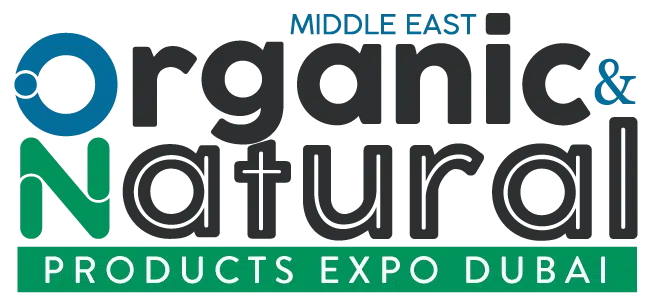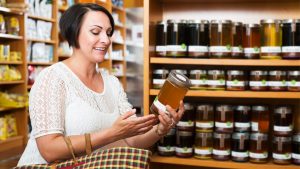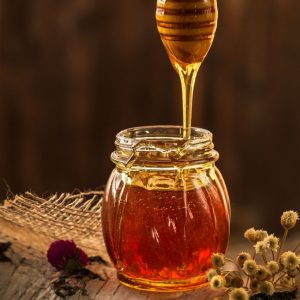Organic and natural honey, especially pure, raw honey, has truly taken off in the region. We asked expert distributors, importers, and thought leaders their opinion.
Honey in the Middle East and Africa is valued at USD935 million in retail sales in 2020 and set to grow by 4% CAGR in 2020 constant terms to reach USD1.1 billion by 2025.
Linda Abdullah – Managing Director, Ultra Products Global
“The demand for organic and natural honey in the Middle East and worldwide is growing at an exponential rate, with the global Organic Honey market being valued at USD 698.70 Million in 2020 and the global Natural Honey market projected to register a CAGR of 5.4% during the forecast period (2021-2026),” started Linda Abdullah, Managing Director, Ultra Products Global, a leading general trader that specializes in High-Quality Products.
Meanwhile, Monique Naval, Senior Analyst with Euromonitor International, mentioned, “Honey in the Middle East and Africa is valued at USD935 million in retail sales 2020 and set to grow by 4% CAGR in 2020 constant terms to reach USD1.1 billion by 2025. Sweet spreads are expected to show 4% retail volume growth and 10% retail current value growth, leading to sales of 28,000 tonnes and SAR1.5 billion respectively in 2020. Honey is expected to witness particularly strong growth in 2020, leading value and volume growth in the category thanks to the perception of honey as a healthy option.”
Riath Hamed, founder of Balqees Honey, importing top-tier natural honey from around the world, opined, “There is a big demand for natural and organic honey. In the region, certification isn’t as important as in Europe and very expensive for beekeepers. As such, natural honey is in demand on a large scale. This is because it has cultural, religious, and traditional connotations. Honey has been a staple just as dates have been in the Middle East and that’s not going to change. A lot of the families use it for medicinal purposes.”
The rise in health consciousness is significantly influencing the growth of honey consumption, specifically natural products.
“Honey is rich in vitamins such as B6, Vitamin C, thiamine, minerals such as iron, calcium, copper, and iron; and has a lower glycaemic index than table sugar, which makes it a sweet substitute, particularly raw or organic. Honey can be used in beverages, processed foods, as an alternative to jams and is increasingly used as an ingredient in health and beauty products as well,” said Abdullah.
Naval had a similar opinion, “The health benefits of honey are widely recognized and the fact that it is known to support the immune system will be of particular interest to consumers as a result of the COVID-19 pandemic. The expected spike in demand for honey in 2020 follows the revival of honey as the product sees an improvement in its growth rate as consumers became more aware of the health benefits of honey. Honey is rich in antioxidants and so, as well as supporting the immune system, it is known to reduce the risk of heart disease. Beyond its array of health benefits, however, honey is also a common ingredient in traditional Middle Eastern recipes such as fetir.”
Natural and Organic honey is imported from all over the world

“We import primarily from Yemen, but we also source different varieties from new Zealand, Australia, Kyrgyzstan, Madagascar, Nepal, India, Pakistan, Chile, Argentina, France, and Italy,” Hamed commented.
Abdullah said, “We import our Honey from Ukraine, which, along with the rest of Europe accounts for 39% per cent share of demand in Organic and Natural Honey space.”
For suppliers who want to enter the region, natural is the way to go.
“Euromonitor International classifies honey as a naturally healthy product. The natural trend continues to flourish and is inspiring not only product formulas but also the positioning of new product developments. Beyond the established product positioning of no artificial ingredients, the natural claim continues to grow in popularity,” stated Naval. “Natural ingredients are increasingly sought out by consumers and packaged food manufacturers, which continue to work towards clean label formulas to meet consumer demand for inherently more natural products. This benefits naturally healthy positioned products.”
“If you are a supplier of Honey, the GCC and MENA region is a great opportunity to start expanding your reach as the local consumers are the target audience who would buy raw, natural honey products,” Abdullah mentioned.
“My advice to companies wanting to enter would be to work with people who already have strong, credible distribution in the country and piggyback off their success,” said Hamed.
We will see year-on-year growth in honey across the Middle East
“The sudden outbreak of the COVID-19 pandemic has affected various industries globally, especially the Middle East. However, with the re-opening of production and processing facilities across various economies and increased efforts by beekeepers and market players to re-establish the disrupted supply chain, the condition of the natural sweeteners market is improving,” Abdullah said.
She also mentioned the spike in growth for pure, raw honey, “Due to its antibacterial, antiviral, and anti-fungal properties, pure, raw honey is receiving appreciation and wider acceptance as an effective medicine to treat acute cough and throat infection observed in corona-infected patients and therefore we see an encouraging growth month-on-month for the natural honey space in the Middle East.”
“I believe it will be a continuing trend of growth, and I do believe there is a natural, strong appetite for honey, I believe that we will see year-on-year growth in honey across the Middle East,” Hamed concluded.



